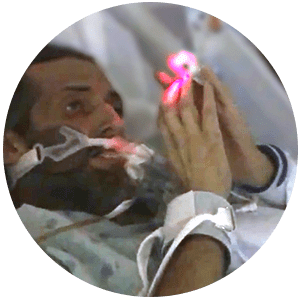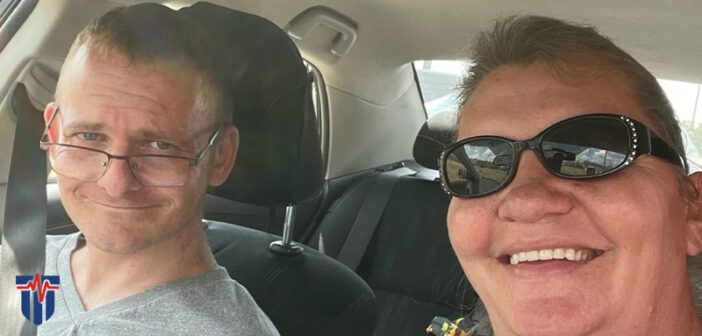Anthony Thomas “TJ” Hoover II suffered a drug overdose and was declared brain dead at a Kentucky hospital in 2021, but some medical staff felt disturbed. He seemed “too alive” to donate his organs.
TJ was a registered organ donor, but his sister knew something was off when she noticed his eyes were open and tracking people’s movements.
At first, doctors assured the family that these movements were just reflexes and confirmed that TJ was certainly brain dead.
But then, one hour into the harvesting process, TJ woke up.
“He was moving around — kind of thrashing. Like, moving, thrashing around on the bed,” an employee who treated TJ that day said in an interview. “And then when we went over there, you could see he had tears coming down. He was crying visibly.”
Medical staff told the family they should take him home and make him comfortable because he didn’t have much time. Three years later, TJ is still alive! He even danced with his sister at her wedding in 2023.
Now, the Hoover family finally discovered the truth about what happened the day they almost lost TJ in that operating room.
Whistleblower Nyckoletta Martin, a former employee of the Kentucky Organ Donor Affiliates (KODA), submitted a letter to the House Energy and Commerce Committee about the incident. Hoover’s case was briefly mentioned in one of the committee’s hearings investigating organ procurement agencies. Another employee, Natasha Miller, reported that TJ began to “thrash” and “cry visibly.” Some doctors even refused to participate in harvesting his organs. KODA instructed Miller’s superior to “find another doctor to perform the surgery and proceed with organ retrieval.” The Kentucky attorney general and federal agencies are now investigating this case.
TJ’s sister expressed her anguish, saying, “He made attempts to say, “Hey, I’m here, but it was kind of ignored.”
A recent study supports the family members’ claim, revealing that most brain-injured patients are aware and try to communicate. Unfortunately, these attempts are often unsuccessful or ignored.
Hoover’s case highlights the many problems with brain death. The driving factor behind brain death was the need for organs, as the demand far exceeds the supply. Established by the Harvard Ad Hoc Committee in 1968, brain death became a novel way to determine death by strictly neurological means. If a doctor determines there is no brain activity, he can declare the patient brain dead, even if his heart is still beating.

Don’t miss important Pro-Life stories like this.
>> Get the Pro-Life Weekly Highlight just once a week:
The advanced technology used to determine brain activity is not entirely accurate. These brain death exams cannot demonstrate with complete certainty that a patient has died. We deserve complete certainty about a loved one’s death, which is why circulatory death has been the standard for centuries.
Despite the prognosis from doctors that TJ would not live for long, three years later, he is alive and recovering. He is home being cared for by his sister. TJ still has a hard time balancing, talking, and seeing due to the brain injury. The family is grateful to have him home!
TJ should have never been declared brain dead. No patient or family should have to go through this traumatic situation. We pray that by the Hoover family sharing their story, we can raise more awareness about the reality of brain death.
Thank you for reading this story! If you support our Pro-Life ministry, chip in with a life-saving contribution today!


